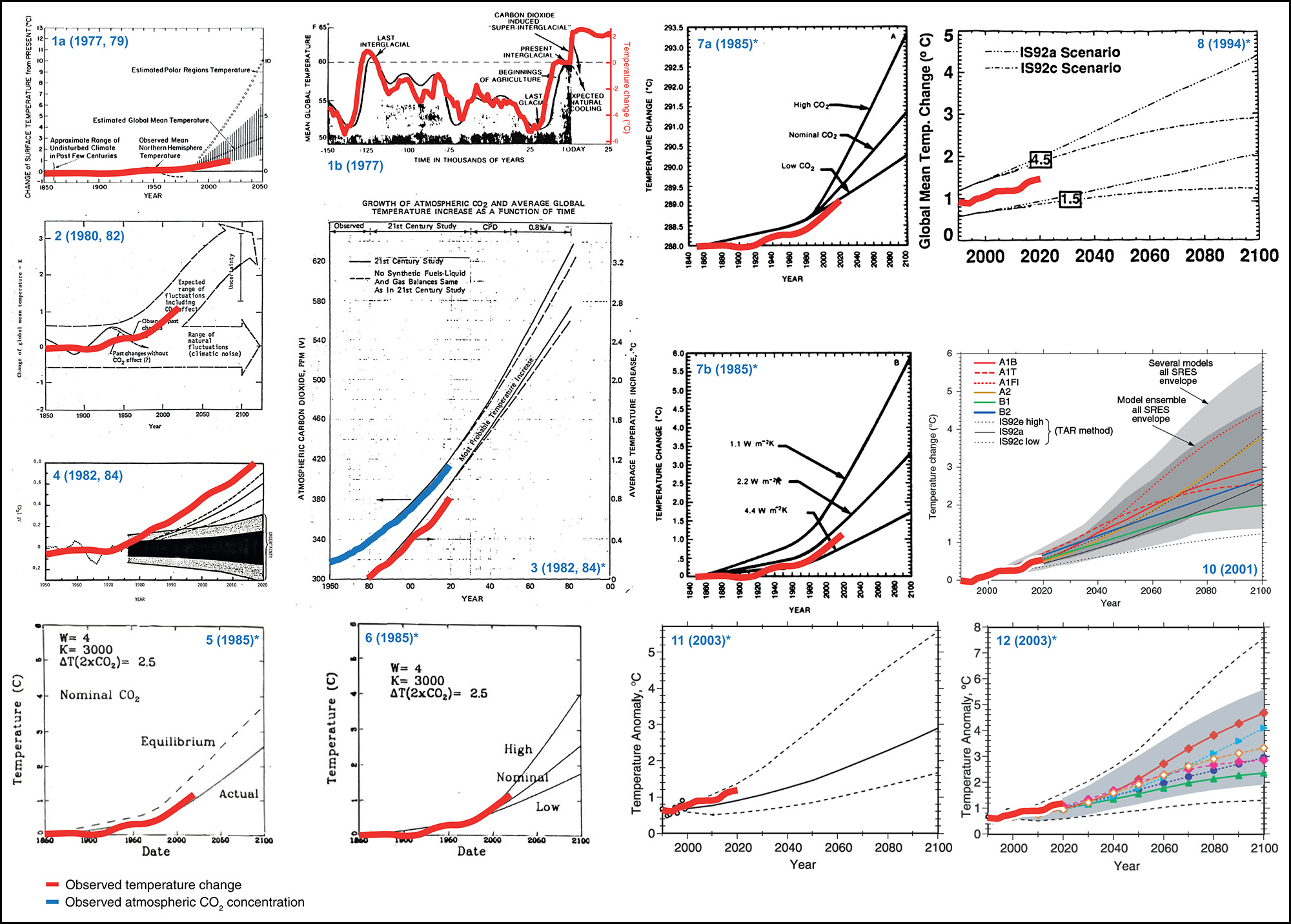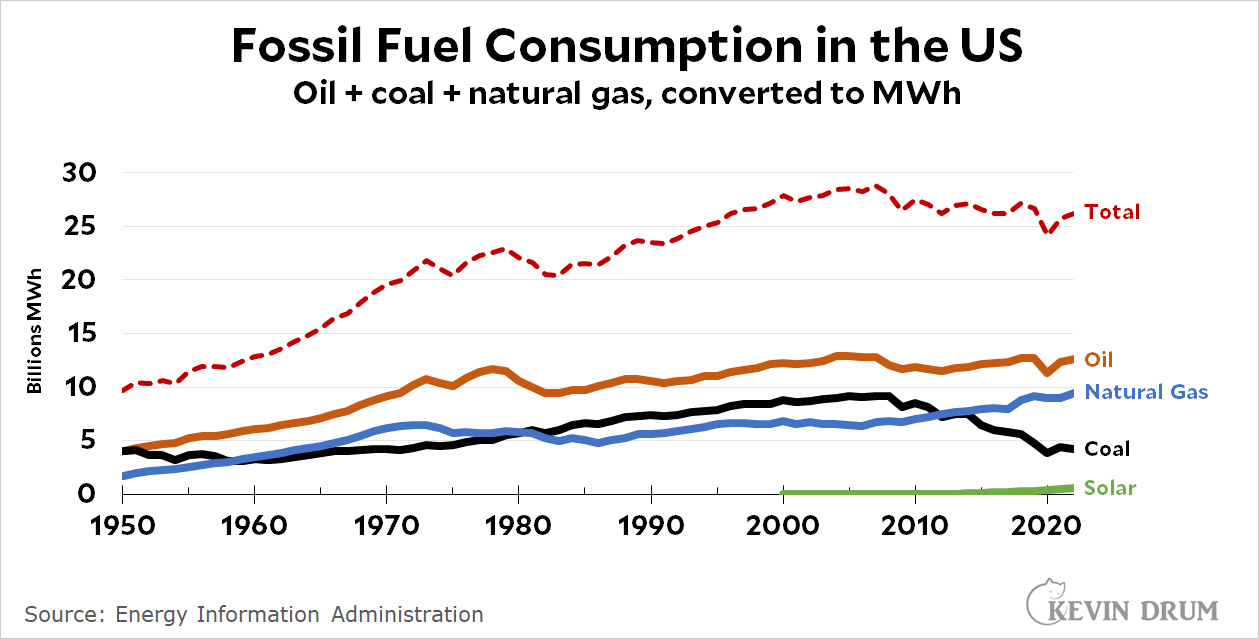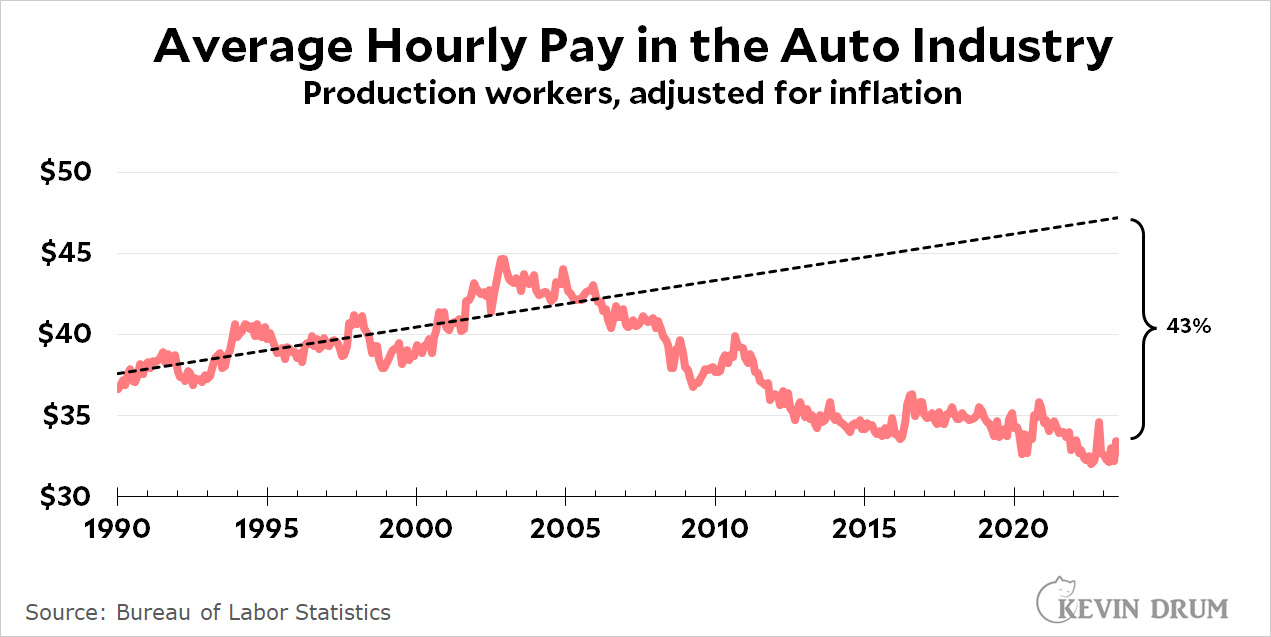Pretty soon, everybody in the world is going to be suing oil companies:
The state of California has sued five of the largest oil and gas companies in the world, alleging that they engaged in a “decades-long campaign of deception” about climate change and the risks posed by fossil fuels that has forced the state to spend tens of billions of dollars to address environmental-related damages.
There's not much question that oil companies have been aware of climate change for a very long time. Here's a set of findings from Exxon Mobil going back nearly 50 years:
 The Exxon scientists did good work! The red lines show actual levels through 2015 (temperature and CO2 concentrations), and they match the Exxon projections very closely. Exxon has known for a long time what the burning of fossil fuels was doing to the planet—and other industry groups have known even longer.
The Exxon scientists did good work! The red lines show actual levels through 2015 (temperature and CO2 concentrations), and they match the Exxon projections very closely. Exxon has known for a long time what the burning of fossil fuels was doing to the planet—and other industry groups have known even longer.
But I'm still uneasy about these lawsuits. Oil companies are obviously no heroes, but the real defenders of climate change denialism are much easier to find: us. All of us. Even now, when the evidence of climate change is unquestionable, we keep burning oil and gas and coal in prodigious quantities. And we aren't doing it because of oil company propaganda. We're doing it because we don't want to give up our cars and air conditioners and plastic bottles:
 It's true that solar power has finally started to inch onto this chart, though it's still so small you can barely see it. And keep in mind that solar didn't start to take off until 2015. We were flatly not willing to use it if it meant any increase whatsoever in electricity prices. We only started to use it when the price of solar fell to a point that absolutely no sacrifice was necessary.
It's true that solar power has finally started to inch onto this chart, though it's still so small you can barely see it. And keep in mind that solar didn't start to take off until 2015. We were flatly not willing to use it if it meant any increase whatsoever in electricity prices. We only started to use it when the price of solar fell to a point that absolutely no sacrifice was necessary.
So sure, sue the oil companies. Why not. But don't think of them as the big villains in the climate change story. We're the villains. All the oil companies did was make a lot of money giving us what we desperately demanded from them.








